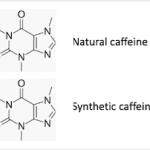A recen
caffeine
If you've already read this recent story on the CNN news site, perhaps it's not too late to get back the deposit on the casket you
We've all dined with people who would rather drink the effluent from the Newark, NJ sewage plant than a cup of regular (caffeinated) coffee in the evening.
As if chemistry isn't excruciating enough. You study it for a year or two and, if you're lucky, it makes sense. And then you run into stuff like this:
1. LSD is commonly called "acid." It shouldn't be
I stumbled across a paper by a group of German chemists from the University of Duisburg-Essen in the journal Analytical Chemistry which left me with mixed feelings.
Although it is difficult to come up with many benefits from an unprecedented deadly global pandemic, there is one, albeit mostly inconsequential nugget that we junk science chasers at ACSH should at least acknowledge.
As exciting as the latest scientific research can seem, it can be hard to discern its true relevance. This context and significance often gets lost in translation when in transit from lab bench to journal article to the public domain.
Recently, a teenager died from ingesting too much caffeine in too short a time period.
The proliferation of coffee shops and energy drinks bears testimony to the fact that caffeine is in high demand. The stimulant is even added to some medicine, like Excedrin Migraine.











